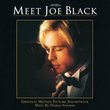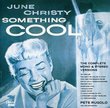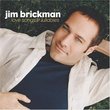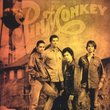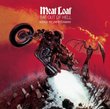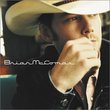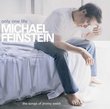| All Artists: Roman Rewakowicz, Jacek Kaspszyk, Elzbieta Towarnicka, Varsov Chamber Choir Title: Requiem For My Friend - Preisner / Rewakowicz, Kasprzyk, Sinfonia Varsovia, et al Members Wishing: 2 Total Copies: 0 Label: Erato Release Date: 2/16/1999 Genres: Pop, Classical Styles: Vocal Pop, Symphonies Number of Discs: 1 SwapaCD Credits: 1 UPC: 639842414623 |
Search - Roman Rewakowicz, Jacek Kaspszyk, Elzbieta Towarnicka :: Requiem For My Friend - Preisner / Rewakowicz, Kasprzyk, Sinfonia Varsovia, et al
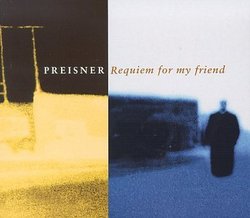 | Roman Rewakowicz, Jacek Kaspszyk, Elzbieta Towarnicka Requiem For My Friend - Preisner / Rewakowicz, Kasprzyk, Sinfonia Varsovia, et al Genres: Pop, Classical
Known more for his film scores than for his full-length concert works, Zbigniew Preisner injects a good dose of his famed film score methodologies into this recording. Divided into two parts, Requiem and Life, this work is... more » |
Larger Image |
CD DetailsSynopsis
Amazon.com Known more for his film scores than for his full-length concert works, Zbigniew Preisner injects a good dose of his famed film score methodologies into this recording. Divided into two parts, Requiem and Life, this work is outstanding in its first nine movements, capturing soaring choral blasts that startle and hold the ear steadily, as does the occasional churning organ and the chamber ensemble, which seems to make far more sound than is possible. The Requiem as a whole is also stylistically cleaved in two: Life heads wholeheartedly into the realm of filmic composition (doing so in four episodes). Resolution is always on the horizon, but the musical tensions seem directed toward a visual conclusion, rather than any kind of sonic release or resolution. To that end, the music itself, especially early in Life, is a bit thin. Maybe it's the alto saxophone, which plays simple figures that get washed out in the cavernous audio. Or maybe it's the building march-like cadence of the "Apocalypse "episode, which seems to announce a particular character without ever producing one. Perhaps it's the desire to create mood without exploring the complexities. As film music, this is excellent stuff, easily capable of throwing musical beams on action. As a purely sonic phenomenon, it's sometimes too much, sometimes too little, and only briefly balanced between the two. --Andrew Bartlett Similarly Requested CDs
|
CD ReviewsPreisner's Soundtrack to Kieslowski's Life is Moving 02/19/1999 (5 out of 5 stars) "Preisner is as enigmatic as ever; locked in the depths of countless minor chords, one is never really sure if he is choosing to inhabit that space or if he is simply incapable of existing elsewhere successfully.Nonetheless, his tribute to Kieslowski is moving and melodious, and one really gets the sense that he has written "Requiem" as a soundtrack for Kieslowski's life. The first half is a traditional "requiem" and sounds very funereal. The second half, "Life" is somewhat more dynamic and features saxophone soloist Jerzy Glowczewski. At one point in "Life," Preisner quotes the "Blue" soundtrack's "Song for the Reunification of Europe," which for me immediately blurred the lines between Preisner, De Courcy, Van Den Budenmeyer, Kieslowski, their lives, and their work.The entire recording features incredible soprano soloist Elzbieta Towarnicka, who was also featured in the soundtracks for "The Double Life of Veronika," as well as "Red" and "Blue," all three of which were films by Kieslowski.It is difficult to say whether Preisner will hold a place as a memorable composer, when compared to other 20th century giants like Stravinsky or Ravel. However, with "Requiem" he manages to capture the zeitgeist of the late 1990's and to turn a handful of beautiful phrases comparable to those we have seen throughout his other work.Ultimately it seems to me that Preisner may be the John Williams of the minor keys; this is not bad company to keep. It will be interesting to see how Preisner's music continues to evolve, and whether he will choose to compose outside of the space of film. If he does choose to extend his reach, the real test will be whether listeners and critics will be able to successfully cross the boundaries between life, fiction, and film that Preisner and Kieslowski have already so successfully blurred." The first part (Requiem) is worth owning this CD nankoweap@yahoo.com | Arizona, USA | 04/21/1999 (4 out of 5 stars) "I heard this piece while browsing the classical record racks at a record store, and couldn't resist purchasing the CD. This 2-part composition--divided into "Requiem" and "Life"--works much better if each section is treated as a separate composition (which is what they probably are). The "Requiem" (Part 1) indeed borders on astounding. It defies a label. It feels classical--even darkly medieval--yet is still plainly late 20th century music. It is haunting, other-worldly, moving, and powerful in its useage of simple resources. In all, a piece of modern classical music that can stand beside the Gorecki 3rd. The 2nd part--"Life"--suffers mostly when it is listened to immediately following the "Requiem". By itself its worthy enough, but the stylistic differences between the 2 don't mesh. "Life" has much more of a film music / New Age feel to it. Instead of the intimate string quintet, percussion and pipe organ accompanying the vocal soloists heard in "Requiem", we now hear full orchestra and chorus belting out "Carmina Burana"-like passages; instead of completely original music, we now hear musical sections that could have accompanied "Titanic" to the bottom. Its still not bad, but it just doesn't reach the lofty heights achieved in the more simply done "Requiem". In short, "Requiem for my Friend" is much more satisfying for its opening half--an outstanding bit of music making!" Stunning, inspiring, restorative A Reader | La Jolla, CA United States | 09/10/2002 (5 out of 5 stars) "This is a major work. If he were not so well known as a film composer, on the one hand, this work would bring him glory. But film composers rarely get respect in the classical world, even when crossing over.) I think Preisner easily ranks with Gorecki and Paart. No question. He writes in the voice of our era. On the other hand, if he wasn't so well respected in the film world, I doubt he could have gotten recorded here. To all that has been said by others here, I would only draw your attention to the "Lacrimosa." Perhaps the version in Part Two, Life: Apocalypse: Lacrimosa-Day Of Tears is the one that would appeal to the most people (although I prefer the version in Part One of the disk). If you're wanting surcease from events "apocalyptic" - either personally or nationally (a la 9/11) - listening to this can be like words to a friend, a voice from beyond (or to the Beyond)... It is the apotheosis of grief. Let the majestic chords wash over you like the ocean, cleansing and diminishing all obstacles with its power. An uncanny experience; and so highly recommended."
|

 Track Listings (18) - Disc #1
Track Listings (18) - Disc #1